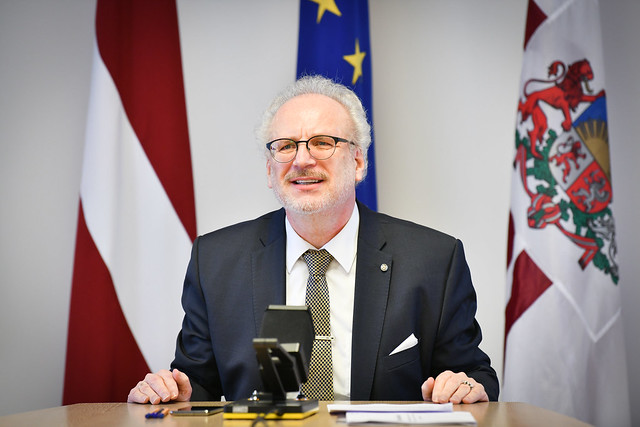After listening to examples of various kinds of cyber bullying presented by the journalist organisations, President of Latvia stressed, ‘All levels of law enforcement – police, prosecutors and courts – should have a shared understanding on what harassment of journalists based on their professional activities would imply’. Law enforcement professionals should be capable of identifying various attempts to prevent journalists from performing their professional duties or work essential for democratic society. Such cases should be prosecuted irrespective of whether harassment of journalists has taken place I physical or virtual world.
President Levits also underlined the negative influence of social media on quality of democracy and the need to introduce public social media regulations both at the national and European Union level. ‘If public discourse deteriorates, if people loose interest in participating in public debate because of its ‘contaminated environment’, that means social media have become a threat to democracy. That is a serious problem, which needs to be addressed.’
President Levits, journalists and invited lawyers offering free legal advice to media also discussed a possibility of providing specific (criminal and administrative) liability for online harassment. Other legal options for protection of journalists and strengthening of media legal environment were also discussed. According to Egils Levits, ‘it is necessary to enhance the awareness of State Police, courts and prosecutors about these issues’.
Other topics of the meeting included regional media, media landscape quality, journalistic ethics and media criticism.





